The Nelson Mandela Foundation, a South African government representative, two prominent South African lawyers (including one who represented Nelson Mandela) and a senior archivist in South Africa all told The Maple they contest claims made by former Canadian MP and cabinet minister Irwin Cotler about his relationship to Mandela and the anti-apartheid movement.
The statements from these figures and organizations contradict the established Canadian political and media narrative on Cotler’s relationship with Mandela and support the findings of a prior investigation from The Maple. However, they also go beyond what The Maple previously reported and bring another one of Cotler’s major claims into question.
In response to a series of questions from The Maple, Cotler defended all of his claims. Also, in January 2023 he told the publication: “I have no interest in overstating my own role in this work, nor do I have a record of doing so.”
Cotler has risen to great prominence in recent decades, with his accomplishments including serving as an MP from 1999 to 2015, a minister and attorney general from 2003 to 2006, and Canada’s special envoy on combatting antisemitism from 2020 to 2023. Cotler has also received at least 15 honorary doctorates, and in 1991 he was awarded the Order of Canada while in 2023 he received Israel’s presidential medal of honour.
Along the way, Cotler has told a story that has captivated audiences and won him praise from prominent figures.
The exact details have varied over the years, but the most common version of Cotler’s narrative is that in 1981 he visited South Africa as a guest of the anti-apartheid movement, gave a speech in support of Mandela that led to him getting arrested and at the end of his trip was asked to be part of Mandela’s international legal team.
This story has been credulously spread by media outlets and politicians in Canada for decades, up to and including Prime Minister Justin Trudeau, with the significance and extent of Cotler’s activity in South Africa inflated alongside his rise to prominence.
However, comments from the figures and organizations mentioned above cast doubt on Cotler’s narrative. In particular, various sources told The Maple there’s no evidence and/or record that Cotler had any relation with Mandela or that he was arrested in South Africa. Some of these figures also disputed Cotler’s recent claim that Mandela wouldn’t have supported South Africa’s case against Israel before the International Court of Justice.
This article will go through each element of Cotler’s narrative, outline what he has said about them and present the findings of The Maple’s research and interviews.
The Maple used several newspaper archives for this article, including: Canadian Newsstream (400+ sources); Newspapers.com (25,000+ papers); Gale OneFile: News (3,000+ papers); ProQuest Historical Newspapers: The Globe and Mail and Toronto Star; the McGill Daily; and the Canadian Jewish News. All searches mentioned were done in these archives unless otherwise specified.
Here is a close look at the various elements of Cotler’s story.
When Did The Trip Take Place?
In recent decades, Cotler has consistently claimed that his trip to South Africa took place in 1981. This claim has also been reported by a wide range of news outlets. However, the earliest reporting The Maple could find stated or implied that a trip took place in 1982. An April 1, 1982, Canadian Jewish News (CJN) article on a lecture Cotler gave about a 10-day trip to South Africa stated that it took place “recently.” An April 7, 1982, article in the McGill Daily also stated that he “recently returned” from a trip. An ad in the May 20, 1982, issue of the CJN, meanwhile, stated that on June 3, Cotler would give the “first community address [...] since his return from a high level lecture tour of South Africa.”
The Maple reached out to Frances Jowell, the daughter of the late-Helen Suzman, who was an MP in South Africa from 1953 to 1989. Cotler has cited Suzman as being his “Parliamentary host” in South Africa. Jowell searched through Suzman’s archive collection and told The Maple she found notes of Suzman meeting with Cotler on Feb. 23, 1982.
The Maple asked Cotler about this discrepancy. He replied: “I was in South Africa both in 1981 and 1982. Helen Suzman, then a member of parliament, along with other anti-apartheid groups, hosted and helped organize my trip in 1981, as well as in 1982.”
The Maple was unable to find any prior example of Cotler writing or stating that he went to South Africa in both 1981 and 1982. The Maple was also unable to find any reporting on Cotler’s 1982 trip mentioning that he had been to South Africa before. In addition, in the past couple of decades Cotler has repeatedly written that a significant event for him in South Africa took place in 1981, but a 1986 article in the CJN directly stated that it took place in 1982. The 1982 McGill Daily article also suggests this event took place on his most-recent trip at the time, which would have been earlier that year.
Who Hosted Cotler On The Trip?
Nearly all accounts of the trip from Cotler that The Maple could find may reasonably give the impression that he made a solo trip throughout the country as a “guest of the anti-apartheid movement,” and received personal invitations to meet the various figures he cites. This is in part because he does not mention being invited to South Africa or travelling across it as part of any sort of group.
However, the earliest reporting The Maple could find on the trip describes Cotler as being just one member of a broader delegation in South Africa. An April 1982 CJN article states: “Cotler spent 10 days in South Africa recently as part of a delegation of human rights leaders. They met with academics, lawyers and government officials.”
The Maple asked Cotler about this perceived discrepancy. He replied, “I visited South Africa in both 1981 and 1982. In 1981, I was the guest of various anti-apartheid groups, as well as the Jewish leadership in South Africa. In 1982, it was a similar situation.”
Did Cotler Get Arrested?
Cotler has claimed he was arrested during a trip to South Africa for giving a speech on the campus of the University of the Witwatersrand, Johannesburg (Wits University) urging the government to free Mandela.
Here is how Cotler described the alleged event in a 2018 blog post: “This transformative visit in 1981, also included an invitation to meet with the Dean, faculty and students at the University of Witwatersrand in Johannesburg; with the Director of its Human Rights Centre, Professor John Dugard; and to deliver several lectures at the University during my stay.
I was also engaged at the time in the struggle for human rights in the former Soviet Union, and acting as Counsel to imprisoned Soviet dissidents including Anatoly Sharansky. I was asked by the South African Union of Students to speak on the human rights struggle in the Soviet Union and the case and cause of Anatoly Sharansky. I responded that I would be pleased to speak but suggested that the topic be ‘If Sharansky, Why Not Mandela?’ though I cautioned the students that, as Mandela was a banned person, I did not want to cause any difficulty for the students themselves. The students, courageously embraced the speech topic which, as it happened, was to lead to my arrest and the confronting of apartheid firsthand.
For the South African apartheid government, Sharanksy was a hero to them in the fight against communism, whereas Mandela was regarded by them as a communist — and a terrorist — to be imprisoned and silenced. In fact, Canada, the U.S., and most Western democracies also considered Mandela a terrorist at the time.
I was arrested shortly after completing my talk amidst what was one of the largest gatherings held at the University at the time because Mandela was a ‘banned’ person, and the mere mention of his name was a punishable offence in South Africa.
While detained, I was summoned to a meeting with Pik Botha (not to be confused with Prime Minister P.W. Botha).”
The Maple sent Cotler’s blog post and asked Dugard — who is representing South Africa in its case against Israel before the International Court of Justice (ICJ), and has served in various United Nations positions — if he has any recollection of Cotler being arrested for giving a speech to students at the university at a time when he was the director of its legal centre, a position he held until 1990.
Dugard replied: “There is some truth in Cotler’s stories. But very little.”
“It is true that I met Cotler in Johannesburg about 1981. At that time it was fashionable for human rights lawyers from abroad to visit South Africa to give their support to the struggle against apartheid. I cannot recall it but it is highly probable that I asked Cotler to give a lecture to my students at the University of the Witwatersrand.”
Dugard then added: “I cannot recall Cotler ever being arrested for addressing a student meeting. This would have been a major event in [South Africa]. I am satisfied it did not happen.”
The Nelson Mandela Foundation’s head of archive and research, Razia Saleh, told The Maple that she “could not find any evidence of [Cotler’s] arrest.”
Gabriele Mohale, the acting head and archivist of the Historical Papers Research Archive (HPRA) at Wits University reached out to The Maple and said: “I have conducted a search of our digital repository and have also conducted a search of the fully searchable digital archive of the Rand Daily Mail, which was a progressive and really prominent South African newspaper from 1902 until its banning in 1985. In both resources [I] have not found any trace of Irwin Cotler at all.” The HPRA website states that it is “one of the most comprehensive public archives in Southern Africa, with over 3400 collections,” including documents on the “anti-Apartheid resistance.”
The Maple forwarded Cotler’s blog post to Mohale and asked if the arrest and related events described within it were something the Rand Daily Mail would have reported on. Mohale replied that the paper “would have certainly reported on such visit, which by nature as described by Cotler is strange enough.”
Mohale also conducted a search for Cotler in the SA Media newspaper database on The Maple’s behalf, as The Maple was unable to access it. WorldCat describes the database as “a news research and press clipping service that retrospectively covers mainstream publications in South Africa, from 1978 to present day. It comprises the original SA Media archive from 1977 to December 2014, consisting of over 4 million articles, and the new SA Media database consisting of 38 publications.”
Mohale told The Maple: “A search of the SA media database, as well as the Rand Daily Mail yielded absolutely no result — no mention of him in the press.”
The Maple also conducted a search for Cotler in a trial version of the Access World News database, which contains newspapers from hundreds of countries, including many within South Africa. No mention of Cotler appeared in the South African publications in the trial version until 2000.
The Maple’s extensive search of Canadian media, meanwhile, found that the first report of Cotler being arrested in South Africa came in a 2004 Toronto Star article, which also happened to state that Cotler was brought before president P.W. Botha after being arrested, not Pik Botha. (A correction notice was issued for the article, but it did not mention the Botha mix-up, and instead stated that an article he wrote for one publication was in fact published in another.)
Since then, Cotler’s claim of having been arrested has been published elsewhere, and as recently as January, including: Maclean’s, the National Post, the Jerusalem Post, TVO and The Globe and Mail. Cotler also made the claim before Parliament as an MP in 2009.
Some early reporting on the trip, from 1982 to 1986, does mention that Pik Botha and Cotler had met. However, none of this reporting, including two feature articles focusing solely on Cotler’s trip, stated that Cotler had been arrested.
The Maple described its various findings on this matter to Cotler and asked him for any proof the arrest took place.
Cotler replied: “My wife, Ariela Cotler, can confirm that it took place. Then Foreign Minister Pik Botha — who, regrettably, is no longer with us — had acknowledged, at the time, that he instructed authorities to detain me for questioning. The fact that there was no reporting may be due to the fact that, neither I nor the South African authorities reported it to the media — nor was I a person of any public profile yet to be of interest to the media — and Mandela was a ‘banned’ person at the time, and was not referenced in the media unless the apartheid authorities wanted it to be so.”
This answer appears to contradict other statements from Cotler as well as findings from The Maple.
Cotler has said that he had at least somewhat of a public profile at the time of his trip due primarily to his work representing Sharansky. For example, a 2015 article from Politics Web based on an interview with Cotler stated that he “first visited South Africa in 1981, at the height of what he refers to as the 15 minutes of fame he achieved for representing Sharansky.” In a 2014 ideacity talk, Cotler said, “Because Sharansky was a celebrated international human rights hero at the time, I was able to get, as what Andy Warhol would say, my own 15 minutes of fame.” Cotler has also stated that he was invited to South Africa to speak on his work with Sharansky, meaning it was internationally recognized.
In addition, Cotler had received press coverage in the years prior to his time in South Africa. Cotler’s claim that he was detained and expelled from the Soviet Union in 1979 received widespread coverage at the time it happened, including in The Globe and Mail, the Toronto Star, and page three of The New York Times. A search of the Newspapers.com website for Cotler up to and including 1980 turned up more than 300 results.
Moreover, a 1982 McGill Daily article based on an interview with Cotler about his time in South Africa stated, “During his visit, Cotler received heavy publicity for his criticism of the regime.” Cotler also told the Daily that he “was surprised by the degree of open criticism of the regime in white newspapers, as well as the degree of free speech at universities,” adding, “Some very strong anti-apartheid statements were made there.” This appears to contradict the claim that the government would have stopped reporting of the supposed arrest.
Cotler’s response also did not address Dugard’s statement.
Cotler has said his speech took place on campus, was attended by a significant audience (“one of the largest gatherings held at the University at the time”) and that he was arrested “as soon” as he finished speaking. If those statements are true, it is unclear how the arrest would not have been witnessed by anyone, and how news of it would then not have made its way to Dugard given his role on campus.
The Maple asked Cotler how Ariela could confirm the alleged arrest had taken place, and if she had personally witnessed it occur. The Maple also asked Cotler when and why he reported the alleged arrest to the media, and to whom he reported it.
Cotler’s executive assistant replied: “Professor Cotler’s wife was present to hear the talk that you referenced and was advised afterwards that her husband had been arrested and detained for questioning.” They did not address the other question.
The Maple was unable to find any other mention of Ariela being with Irwin in South Africa.
Was Cotler Mandela’s Lawyer?
Cotler has repeatedly claimed that at the end of his trip to South Africa, Israel Maisels asked him to be “Canadian counsel” for Mandela. Cotler has described Maisels as a member of Mandela’s legal team and on at least one occasion as the “leading lawyer” for Mandela at the time of his trip.
Maisels died in 1994. Dugard is the only relevant person mentioned in Cotler’s 2018 account of the trip that is still alive. Dugard told The Maple: “Cotler was certainly not a lawyer for Mandela.”
In fact, Dugard, who described Maisels as a friend, said that not even Maisels was a lawyer for Mandela at the time of Cotler’s trip. Maisels represented Mandela at the Treason Trial, which took place from 1956 to 1961, but not at or even after the Rivonia Trial, which took place from 1963 to 1964 and led to Mandela being sentenced to life in prison.
The Maple asked Cotler how Maisels could have invited him to join a legal team he hadn’t been a part of for decades. Cotler replied: “While not a member of the legal team for litigation purposes post-trial, he maintained a relationship with Mandela, as did Arthur Chaskalson and George Bizos.”
Dugard told The Maple that one of Mandela’s lawyers during this period was Ismail Ayob. Ayob is mentioned repeatedly in several books by and about Mandela, which describe him as Mandela’s lawyer and one of just a few people able to meet with him frequently while he was in prison. Ayob is still alive, and appears to be the only member of Mandela’s legal team to be so.
The Maple reached out to Ayob, forwarded him Cotler’s blog post and asked if he had met Cotler and if Cotler represented Mandela in any capacity. Ayob replied: “I’ve never heard of any Irwin Cotler.”
When asked about this, Cotler told The Maple, “I can understand that Ayob doesn’t remember me, though George Bizos introduced us at the time. You might find it helpful to review the attached remarks from Justice Dikgang Moseneke (former Deputy Chief Justice of the Republic of South Africa) at the Inaugural Nelson Mandela Lectureship in Human Rights, where my close association with Isie Maisels is directly referenced.”
None of Cotler’s accounts of his trip that The Maple could find mentioned Ayob despite the accounts name dropping many other prominent people. The lecture transcripts Cotler sent The Maple also did not mention any relation he had with Ayob or Mandela.
The Nelson Mandela Foundation (NMF) told The Maple there is “no evidence” Cotler represented Mandela in any capacity. Saleh said that in 2022 after a query regarding any connection between Mandela and Cotler, the organization “searched extensively in the archive and contacted many people to ascertain the claim” and ultimately “could find no evidence (or mention) in the archive of Irwin Cotler having represented Madiba in any legal capacity or otherwise.”
Mandela established the NMF in 1999. One of the organization’s founding principles was, “The creation, establishment, protection and preservation of a Centre of Memory about Mr. Mandela, which contains an archive of the life and times, works, and writings of the Founder.” The NMF’s website adds that it “fields several thousand enquiries a year about Mr. Mandela, about archival sources, access to materials, and use of Mr. Mandela’s intellectual property,” and ultimately “constitutes a one-stop shop for all such enquiries, whatever their origin.”
The Maple summarized Dugard and the NMF’s statements on Cotler’s alleged lack of a relationship with Mandela for Cotler, and asked him if he had any comment. Cotler replied, “I was never a part of Mandela’s legal team, respecting his trial and litigation in South Africa, nor did I ever claim to be.” His answer did not address that the NMF stated it had found no proof of Cotler representing Mandela in any capacity.
In addition, The Maple contacted the South African embassy in Canada to ask about the matter. High commissioner Rieaz Shaik replied: “I have no recollection whatsoever of Mr. Irwin Cotler representing Mr. Mandela in any legal capacity.”
Shaik referenced a previous article from The Maple and said, “As your detailed research shows, there seems to be no evidence that supports such a claim in recorded histories of that time.”
In January 2023, Passage (which merged with The Maple later that year) published an article examining claims from and about Cotler on this supposed relationship.
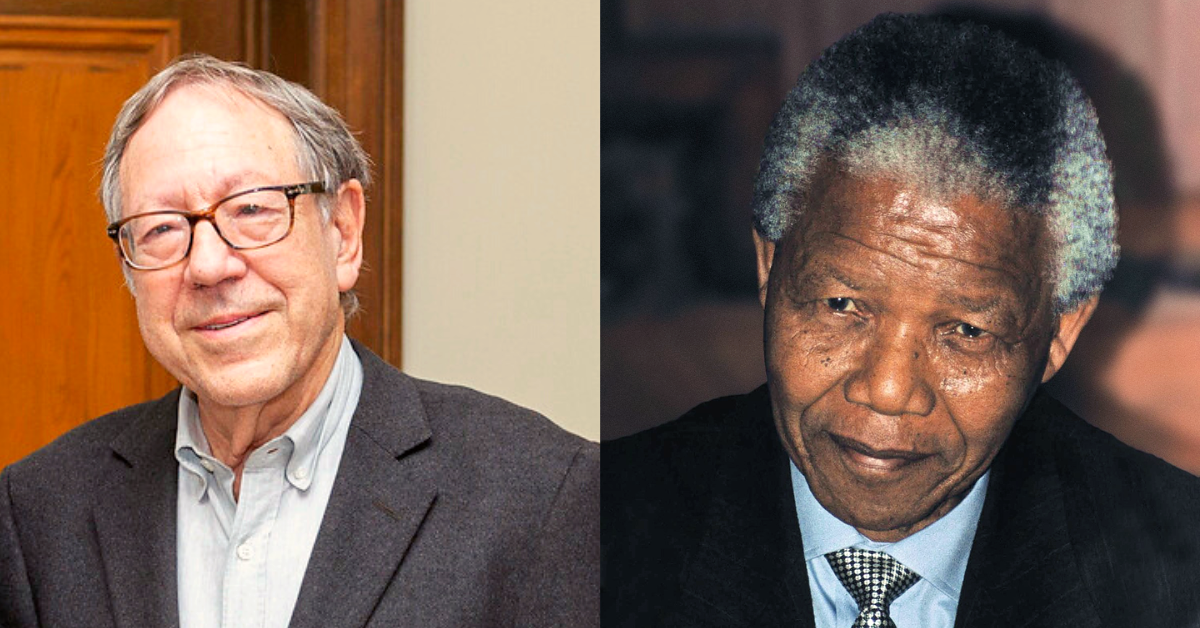
The Maple’s investigation found no clear evidence to support the dominant narrative in Canada:
- Cotler wasn’t mentioned by name in any of the speeches Mandela gave in Canada on multiple visits between 1990 and 2001, including one when Cotler was an MP;
- Cotler’s name wasn’t mentioned in 12 books (about 6,000 pages between them) by or about Mandela, or by his lawyers in South Africa (including Maisels) describing the legal battle;
- Cotler’s description of what he did for Mandela includes no actual legal work;
- Cotler’s description of the meeting where he was supposedly asked to be “Canadian counsel” is seemingly the only one that exists, with efforts to find reports on it from a different source being unsuccessful
The Maple found a 2014 interview in Diplomat Magazine where Cotler described his relationship with Mandela as a “cameo presence,” and Cotler said this was a fair assessment when asked by The Maple in 2023.
A couple critics of The Maple’s investigation alleged this was proof that neither Cotler nor Canadian media or politicians had concocted or overemphasized any relation he had with Mandela. However, this description of Cotler is among just four exceptions to the overwhelming trend in coverage The Maple has reviewed.
Here are examples, at least some of which are articles based on interviews with Cotler.
In the past year, an article from The Globe and Mail stated that Cotler “helped free Mandela.”
In this decade, the National Post and The Globe and Mail said that he acted “as counsel” for Mandela, while the Canadian Press said that he “defended” and “advised” Mandela.
Earlier in this century: Reuters said that he was a “former Mandela lawyer”; the National Post said he was “instrumental in winning the release” of Mandela and was Canada’s “most tireless Mandela supporter”; the Toronto Star said he “counselled” Mandela; the Montreal Gazette said he “advocated on behalf” of and “defended” Mandela, and was “at the forefront” of the battle to free him; The Globe and Mail said he “famously represented” Mandela; the Canadian Press said he “made his reputation” by “working” for Mandela; Maclean’s said he “helped free” Mandela.
In the 1990s: the Canadian Press said he “advised” Mandela; The Globe and Mail said he served “as Canadian counsel” to Mandela; the Edmonton Journal said he had been Mandela’s “lawyer.”
And in the 1980s: the Montreal Gazette said his “advocacy on behalf” of Mandela “catapulted him to prominence”; the Ottawa Citizen said he was “the Canadian counsel for Nelson Mandela”; The Globe and Mail said that he “represents” Mandela.
The Maple asked Cotler if he believes the media has exaggerated his involvement with Mandela over the years, and if so, if he believes he has any responsibility for this occurring.
Cotler said, “I have not seen all media reports. I’ve always characterized my own role as being a ‘cameo role,’ and can’t account for what has otherwise been reported.”
The Maple found four instances of Cotler (as well as anyone else) using the word “cameo” to describe his involvement with Mandela’s legal team over the past four decades: two of them were by email in response to questions from The Maple, one was in the 2014 interview mentioned, and one was in a 2023 documentary on Cotler.
However, Cotler has used titles for his alleged role in Mandela’s legal team that can potentially be interpreted as encompassing something more than just a “cameo” presence.
For example, a biography page for Cotler on the Prime Minister’s Office’s website states that he “served as counsel” to Mandela. In 2009, Cotler told Parliament that he was “associated” with former lawyers for Mandela “in the defence of Nelson Mandela.” In 2013, Cotler described himself in a speech before Parliament as “one who served as a member of [Mandela’s] international legal team.” Also in 2013, Liberal Party leader Justin Trudeau gave up his invitation to Mandela’s funeral to allow Cotler, then a fellow Liberal MP, to go instead. According to Cotler, Trudeau asked him to “represent the Liberal Party as Mandela’s lawyer” — not as a cameo presence, not as Canadian counsel, not as counsel, not even as one of Mandela’s lawyers, but rather, Mandela’s lawyer. Cotler has also written that he was involved in an event in the 1980s “in my capacity as Mandela’s lawyer.”
Would Mandela Have Opposed South Africa’s Case At The ICJ?
Cotler is perhaps the most prominent pro-Israel figure in Canada, and has used his supposed link to Mandela as well as support for South Africa’s anti-apartheid movement to counter criticism of Israel, including that it is an apartheid state.
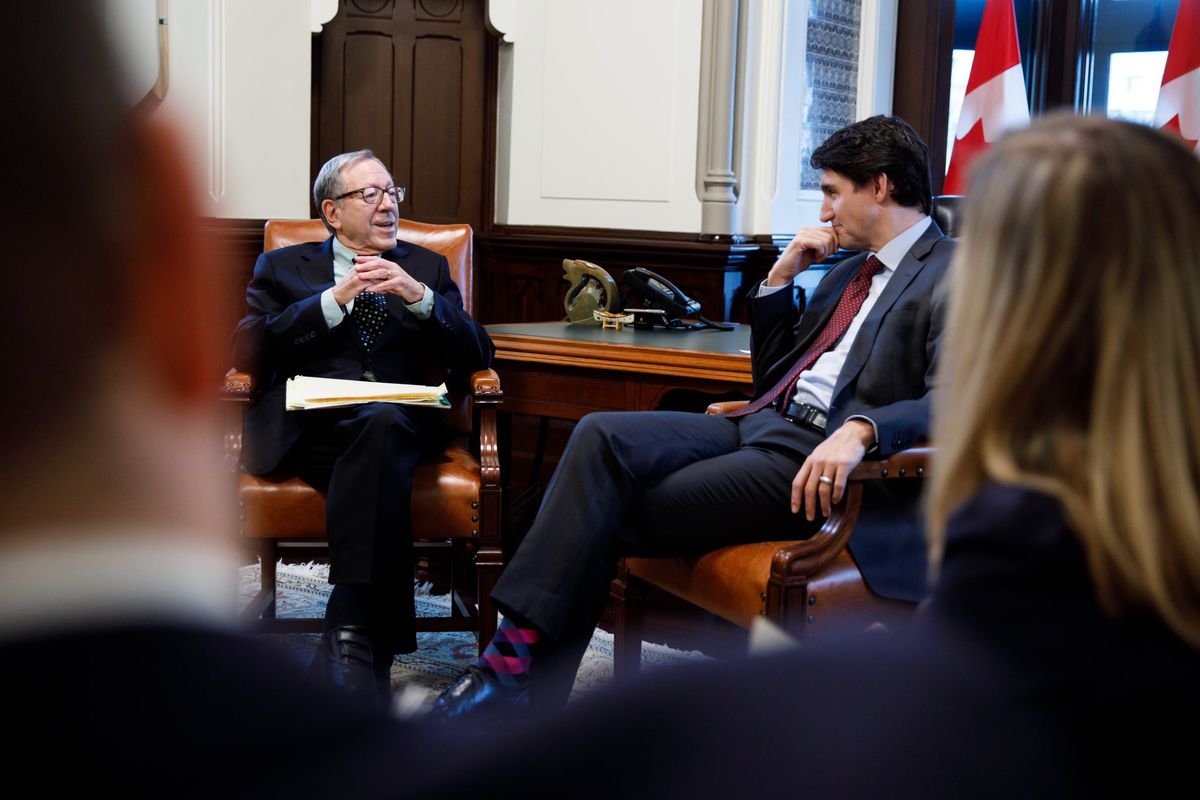
The Maple asked Shaik, Saleh and Dugard about a January CBC Power & Politics interview of Cotler.
In a question regarding the view many South Africans have of there being a “commonality” between their history and the plight of the Palestinians, the CBC interviewer described Cotler as “part of Nelson Mandela’s international legal team when he was in prison.” The impression given here is that Cotler had a privileged relationship with Mandela and thus would have more authority to speculate on Mandela’s views and South African history.
Cotler responded by describing the comparison South Africans make between themselves and Palestinians as a “false analogy,” invoking his supposed personal relationship to the anti-apartheid struggle and Mandela, and declaring, “Mandela would not support, I’m sure, a genocide charge against Israel,” referring to South Africa’s case against Israel at the ICJ. CBC then paraphrased this quote for the video’s title on its website.
Shaik told The Maple: “As the representative of the South African government in Canada, I was taken aback by Mr. Cotler’s patronizing claim that he made on behalf of Mr. Mandela.” Shaik noted Mandela’s advocacy for the Palestinians and said, “It is therefore unimaginable to think that Mr. Mandela would have done anything else but support [South Africa’s] case to the hilt before the ICJ.”
He added, “To speak on behalf of great leaders, such as Nelson Mandela, who have passed on, in a manner inconsistent to their declared beliefs, is to be disrespectful of the legacies and lessons that such leaders have bequeathed onto the living. Mr. Cotler’s claim is most un-African and demeaning to the memory of Nelson Mandela’s contribution to international law and to global peace. I would strongly advise Mr. I Cotler to refrain from such opportunisms and to respect the true memory of Nelson Mandela.”
Dugard, who disclosed that he is one of the lawyers representing South Africa at the ICJ, told The Maple: “It is outrageous for Cotler to suggest that Mandela would not have given his support to the case against Israel.” He added, “When he was released from prison Mandela declared that South Africans would not be free until Palestinians were free. Mandela would have loved the case!”
Saleh from the NMF, meanwhile, told The Maple: “I don’t think [Cotler] can speak authoritatively on what Mr. Mandela would or would not support.”
The Maple summarized the responses from Dugard, Shaik and the NMF for Cotler, and asked him if he had any response.
Cotler stated, “Professor Dugard’s position is not surprising. You will know Dugard is deeply invested in the ICJ case, having represented South Africa before the ICJ and as a longtime vocal critic of Israel, which he accuses of being an ‘apartheid’ state. That said, and while none of us can be certain of the position a now deceased individual would take, I have not been the only one whose understanding of Mandela’s publicly pronounced positions on these issues — his support for ‘two states for two peoples,’ and that Israel has a right to live within secure and recognized boundaries as per UN Security Resolution 242 — has led to the understanding that he would likely not have supported South Africa’s position at the ICJ. The Chief Rabbi of South Africa has also made this point, as well [as] other anti-apartheid activists, too numerous to mention.”
Cotler did not explain how Mandela’s position on the two-state solution would lead him to oppose South Africa’s case before the ICJ, given this is not the matter being litigated, as well as that South Africa’s legal team represents a government that holds the two-state solution as its official policy and has condemned Hamas for killing civilians and taking hostages.
The rabbi Cotler makes reference to, Warren Goldstein, was born in 1971, making him just 19 years old when negotiations to end apartheid began. He does not appear to be recognized as an anti-apartheid activist. Meanwhile, while Cotler claims that there are too many other “anti-apartheid activists” who oppose South Africa’s case before the ICJ to mention, he did not name any at all.
A couple of weeks after the CBC interview with Cotler, the ICJ published an order finding that “at least some of the acts and omissions alleged by South Africa to have been committed by Israel in Gaza appear to be capable of falling within the provisions of the [Genocide] Convention.”
South Africa’s case against Israel will be heard.


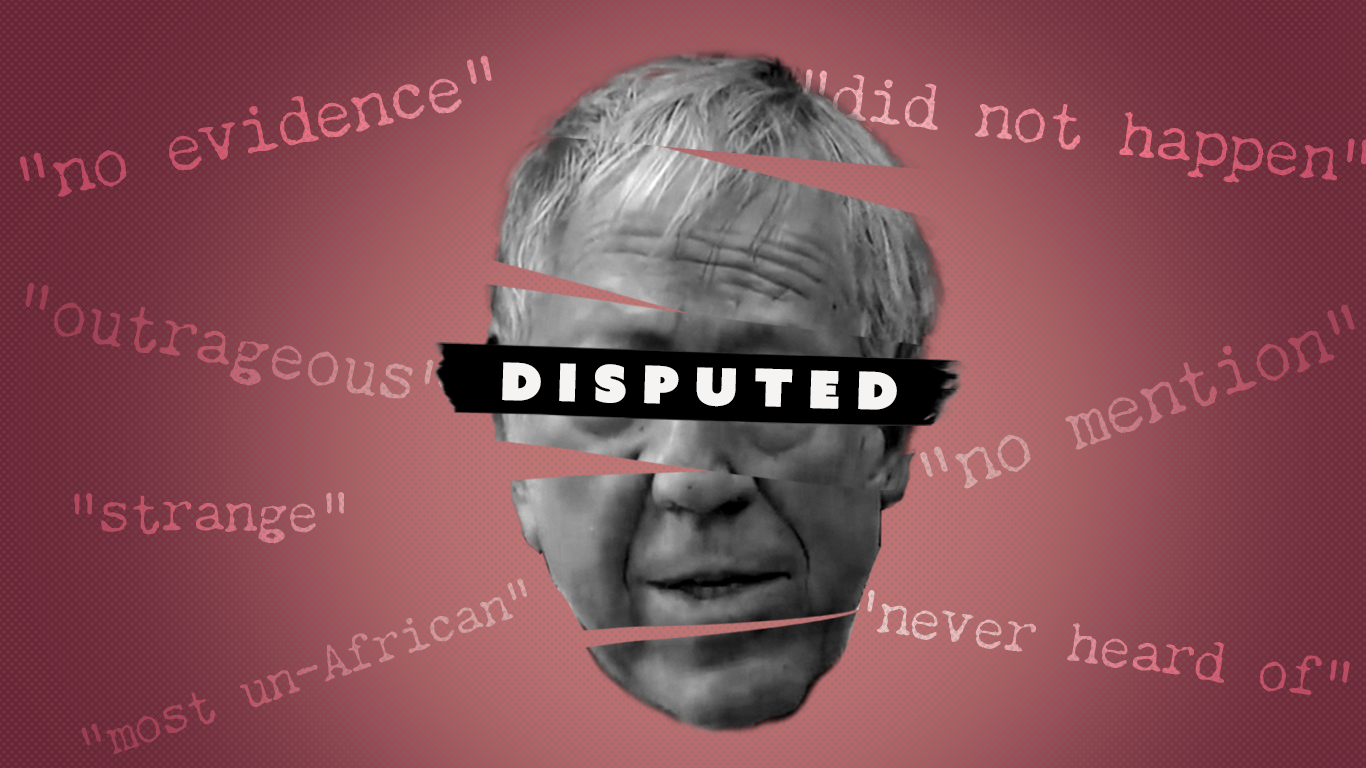

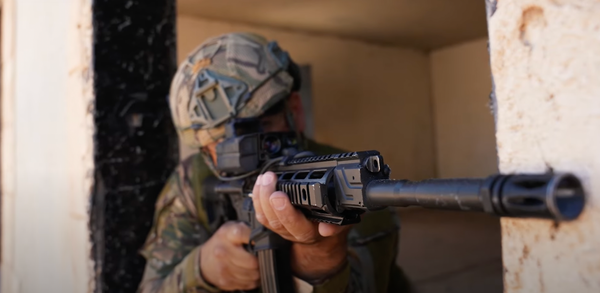
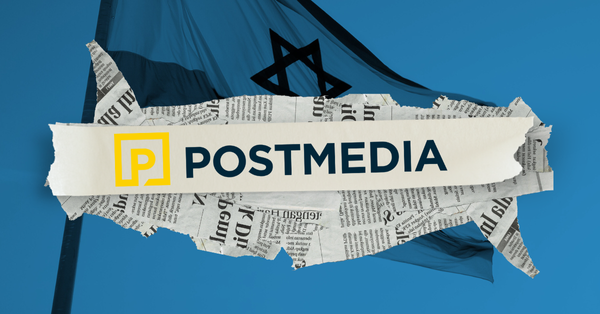
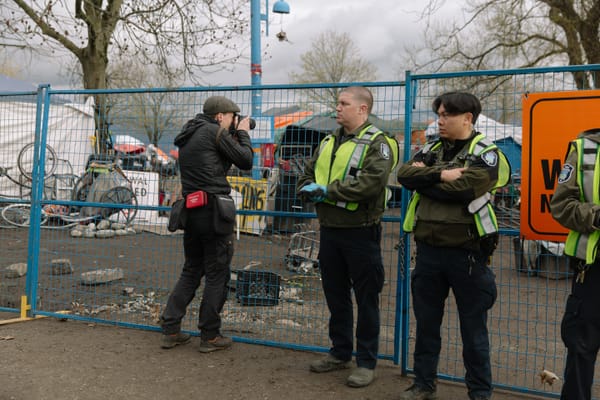
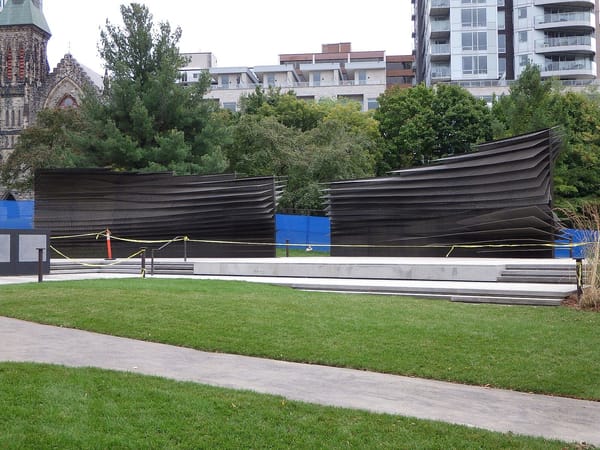
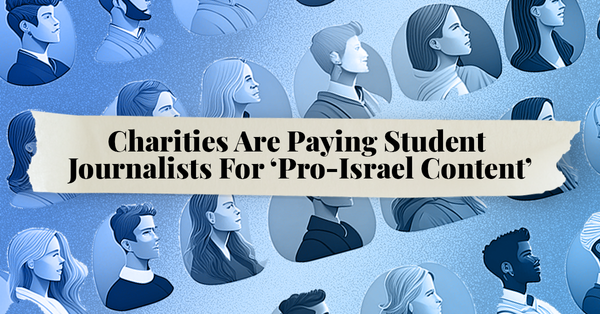
Member discussion